Many people take calcium and iron supplements to support bone health or fix low iron levels. But if you’re also on medication, you could be making a serious mistake - one that stops your pills from working. The problem isn’t that the supplements are bad. It’s that they block how your body absorbs key medicines. And it’s happening more often than you think.
Why Calcium and Iron Fight With Your Medications
Calcium and iron are both positively charged minerals. So are antibiotics like ciprofloxacin and tetracycline. When they meet in your gut, they stick together like magnets. This binding prevents your body from absorbing the medicine properly. You might take your antibiotic as directed, but if you took a calcium pill an hour before, your body might absorb only 30% of it - or less. Iron does the same thing. It interferes with tetracycline, ciprofloxacin, and even drugs for Parkinson’s and seizures. The result? The infection doesn’t clear. The tremors don’t improve. The seizure risk stays high. It’s not just antibiotics. Calcium and iron also mess with thyroid medication like levothyroxine. If you take them together, your thyroid hormone won’t get into your bloodstream. You’ll keep feeling tired, cold, and sluggish - even if you’re taking your pill every morning.How Calcium Blocks Iron Absorption (And Why It Matters)
Here’s the twist: calcium doesn’t just interfere with medications. It also blocks iron absorption - even from your own supplement. A 1991 study in the American Journal of Clinical Nutrition showed that 600 mg of calcium (about two Tums tablets) cut iron absorption by nearly half. Even calcium citrate, often considered gentler on the stomach, reduced iron uptake by 62%. And this wasn’t just in test tubes - real people eating real meals saw the same drop. Why? Two reasons:- Calcium and iron use the same doorway in your gut - the DMT1 transporter. When calcium is around, it crowds out iron.
- Calcium carbonate (found in Tums and many supplements) acts like an antacid. It raises your stomach pH, making iron less soluble. Iron needs acid to dissolve. No acid? No absorption.
What Medications Are Affected?
Here’s a clear list of common drugs that don’t play nice with calcium or iron:- Antibiotics: Ciprofloxacin, levofloxacin, ofloxacin (fluoroquinolones); tetracycline, doxycycline, demeclocycline (tetracycline class)
- Thyroid meds: Levothyroxine (Synthroid, Levoxyl)
- Bone meds: Alendronate (Fosamax), risedronate (Actonel)
- Seizure drugs: Phenytoin, carbamazepine
- Parkinson’s meds: Levodopa
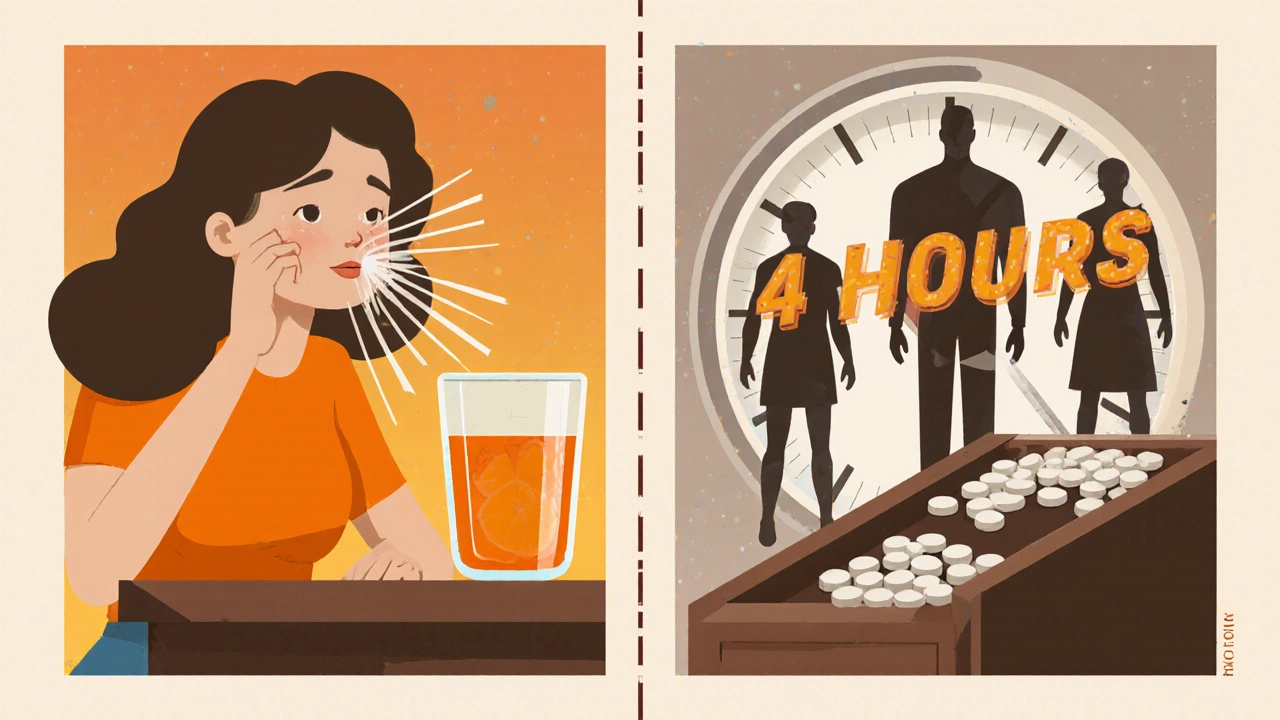
When to Take Your Supplements (The Real Timing Rules)
You can’t just stop taking calcium or iron. But you can fix this. Here’s what works:- Iron: Take on an empty stomach - at least 1 hour before or 2 hours after food. This gives you the best absorption. If it upsets your stomach, take it with a small amount of food (avoid dairy, coffee, tea, or high-fiber meals).
- Calcium: Take with food. That’s when your body absorbs it best. Calcium carbonate needs stomach acid to dissolve. Calcium citrate doesn’t, so it’s a better choice if you’re on acid-reducing meds.
- Between iron and calcium: Wait at least 4 hours. If you take iron at 8 a.m., don’t take calcium until 12 p.m. or later. Better yet - take iron in the morning, calcium at night.
- Between iron and antibiotics: Wait 2 hours before or 4 hours after. For tetracycline, stick to the 4-hour window. For ciprofloxacin, 2 hours is usually enough.
- Between thyroid meds and anything: Take levothyroxine first thing in the morning, on an empty stomach. Wait at least 4 hours before taking calcium, iron, or even multivitamins.
How to Boost Iron Absorption (Without Supplements)
If you’re taking iron, you want every bit you can get. Vitamin C helps - a lot. A study showed vitamin C can increase iron absorption by up to 300%. That means:- Take your iron pill with a glass of orange juice.
- Or eat a bell pepper, strawberries, or kiwi with your pill.
- Don’t take it with coffee, tea, milk, or whole grains - they block iron.
Who’s at Highest Risk?
This isn’t just a “maybe” problem. It’s a real health threat for:- Women of childbearing age: Already at risk for low iron. Calcium supplements with meals make it worse.
- Older adults: Often take multiple meds, calcium for bones, and iron for anemia. High interaction risk.
- People with chronic conditions: Thyroid disease, osteoporosis, chronic infections, or Parkinson’s.
- People on long-term acid-reducing meds: PPIs like omeprazole are linked to iron deficiency over time.
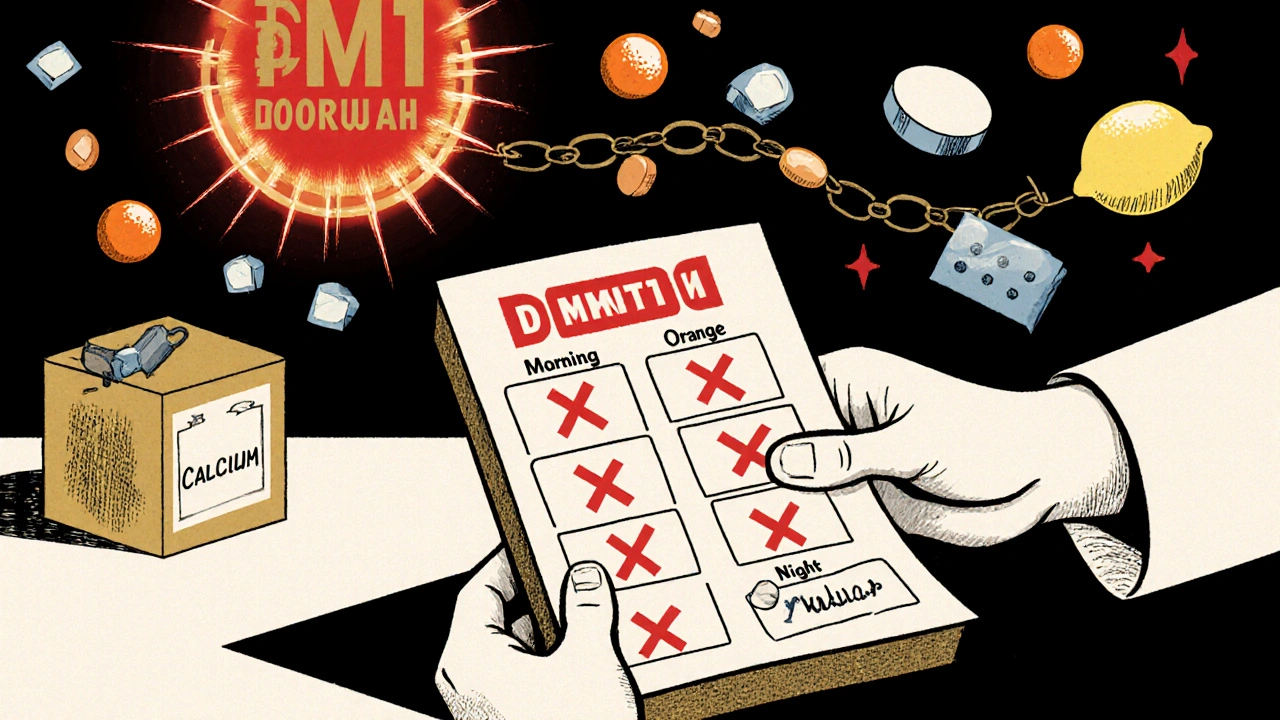
Safety Warnings You Can’t Ignore
Iron overdose is the leading cause of fatal poisoning in children under 6. If a child swallows even one iron pill, call poison control immediately. Also, black stools are normal with iron supplements. But if they’re tarry, bloody, or you feel dizzy - get help. That could mean internal bleeding. Liquid iron can stain teeth. Use a straw. Rinse your mouth after. Baking soda paste can remove stains.What to Do Right Now
If you take calcium, iron, or any of the meds listed above:- Check your pill bottles. Look for warnings about “take on empty stomach” or “avoid antacids.”
- Write down all your supplements and meds - including OTC ones like Tums or multivitamins.
- Map out your daily schedule. When do you take each one?
- Call your pharmacist. Ask: “Which of my meds interact with calcium or iron?” They’ll give you a simple plan.
- Don’t change your routine without advice. But don’t ignore this either. Your meds might not be working - and you won’t know until it’s too late.
Bottom Line
Calcium and iron supplements aren’t the enemy. But taking them at the wrong time with your meds? That’s a recipe for failure. You might be doing everything right - taking your pills, eating healthy - but still not getting the benefit. Fixing this is simple: space them out. Iron in the morning. Calcium at night. Thyroid med first thing. Antibiotics on an empty stomach. And always, always check with your pharmacist before adding a new supplement. Your body doesn’t work in isolation. Every pill you take talks to the others. Learn how they talk - or risk silence.Can I take calcium and iron together if I space them 2 hours apart?
No. Even 2 hours isn’t enough. Studies show calcium still interferes with iron absorption for up to 4-6 hours after intake. For best results, separate them by at least 4 hours - ideally, take iron in the morning and calcium at night.
Does it matter what form of calcium I take?
Yes. Calcium carbonate (found in Tums and many cheap supplements) needs stomach acid to work - so it’s worse for iron absorption and doesn’t work well if you’re on acid reducers. Calcium citrate is better. It absorbs without acid and causes less interference. If you’re on omeprazole or famotidine, choose calcium citrate.
Can I take iron with my morning coffee or tea?
No. Coffee, tea, and even red wine contain tannins that block iron absorption. Wait at least 1 hour after taking iron before drinking these. Water or orange juice is your best bet.
Why do I need to wait 4 hours after iron before taking thyroid medication?
Iron binds to levothyroxine in the gut, preventing it from entering your bloodstream. Even small amounts of iron can cut thyroid hormone absorption by over 50%. Waiting 4 hours gives your body time to clear the iron from your system so your thyroid med can work properly.
What if I forget and take them together? Should I take another dose?
Don’t double up. Taking extra medicine can be dangerous. Just wait until your next scheduled dose. If it’s a one-time mistake, it’s unlikely to cause harm. But if this happens often, talk to your doctor or pharmacist about adjusting your schedule.
Can I get enough iron from food instead of supplements?
Yes - if you eat well. Heme iron from meat, poultry, and fish is absorbed better than plant-based iron. Pair it with vitamin C-rich foods like bell peppers or citrus. But if you’re diagnosed with iron deficiency, food alone usually isn’t enough. Supplements are often necessary - just take them correctly.
Is it safe to take calcium and iron with a multivitamin?
Not if the multivitamin contains iron or calcium. Most multivitamins include both. If you’re on thyroid or antibiotic meds, this creates a high-risk situation. Stick to a multivitamin without iron or calcium, and take those minerals separately at the right times.
What are the signs that my iron supplement isn’t working?
If you’ve been taking iron for 6-8 weeks and still feel tired, dizzy, or short of breath, it may not be absorbed. Your doctor can check your ferritin and hemoglobin levels. Also, if your stools are still black but you’re not having other symptoms, that’s normal. But if you’re pale, weak, or have heart palpitations - get tested.

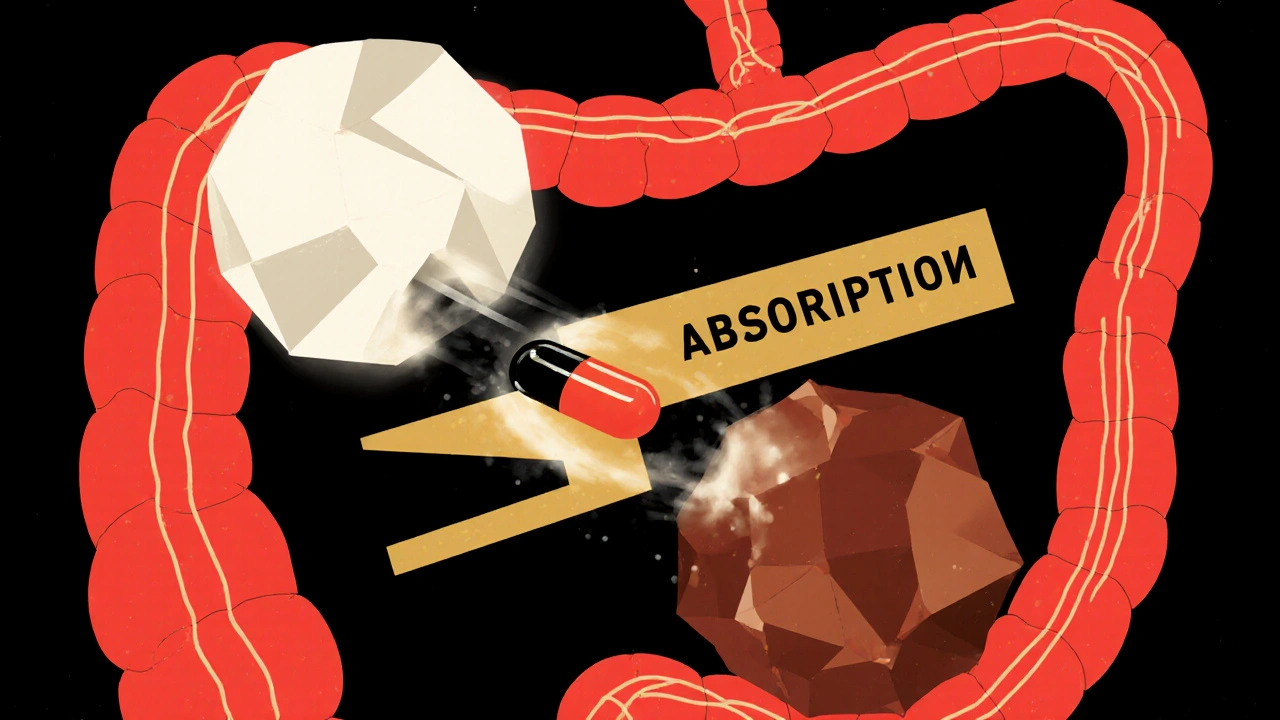

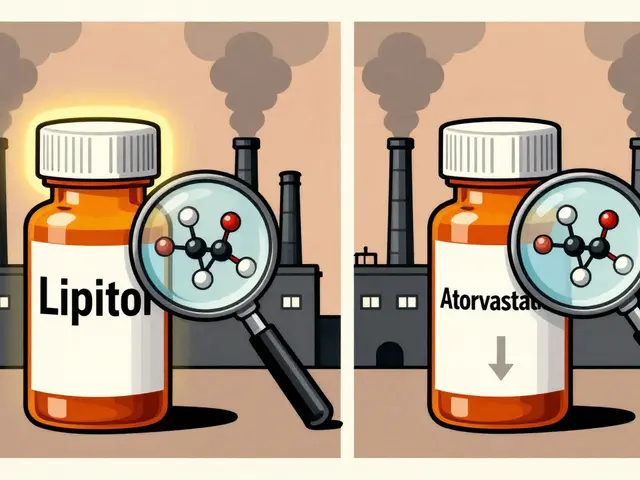
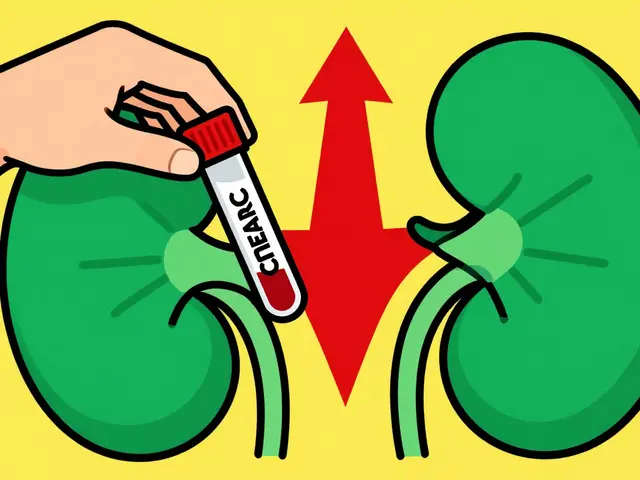


Wendy Edwards
November 27, 2025 AT 13:43i took calcium with my levothyroxine for months and thought i was just 'always tired'... turns out my meds were useless. i switched to calcium citrate at night and now i actually feel human again. thank you for this post. i wish my doctor told me this.
Ryan C
November 28, 2025 AT 22:30Actually, the DMT1 transporter isn't the only mechanism - calcium also upregulates calbindin-D9k, which competes with iron-binding proteins in enterocytes. Also, vitamin C doesn't just boost absorption - it reduces ferric iron (Fe3+) to ferrous (Fe2+), the only form DMT1 can transport. 📚💊
Dan Rua
November 29, 2025 AT 16:56Big respect to the OP for laying this out so clearly. I used to take my iron and calcium together because 'it’s just one pill'... yeah, no. Now I do iron at 7am with OJ, calcium at 9pm. Life changed. 😊
Mqondisi Gumede
December 1, 2025 AT 02:36why are we all so scared of chemistry? your body knows what to do. if you need supplements you already lost the game. stop overthinking and eat meat. calcium? eat cheese. iron? eat liver. pills are for people who dont trust nature. and dont get me started on pharma
Douglas Fisher
December 1, 2025 AT 20:17Wait-so if you take iron on an empty stomach, and then eat a meal with fiber, dairy, or tea 30 minutes later-does that still interfere? Because I’ve been doing that… and I’m confused. I mean, I know it’s bad, but how bad? Is it 10%? 50%? I need to know… because my ferritin’s still low… and I’m scared…
Amanda Meyer
December 3, 2025 AT 15:43This is one of those posts that should be mandatory reading for every adult over 40. I’ve seen so many patients with unexplained fatigue, and it’s always because they’re taking their thyroid med with their multivitamin. It’s not laziness-it’s ignorance. And we can fix that.
hannah mitchell
December 4, 2025 AT 16:09huh. i always thought calcium was good for everything. guess i was wrong. thanks for the clarity.
Vanessa Carpenter
December 5, 2025 AT 23:47I’m a nurse, and I can’t tell you how many times I’ve had to explain this to patients. One woman took her iron with her calcium pill at breakfast and wondered why her hemoglobin didn’t budge for a year. She cried when she realized it was the timing. This post? It’s a gift.
stephen riyo
December 7, 2025 AT 19:52Wait, so if I take my iron at 7am, and my thyroid med at 8am… is that too close? I mean, I’ve been doing that for months… I hope I didn’t ruin everything… I’m just trying to be efficient… I don’t want to be a burden…